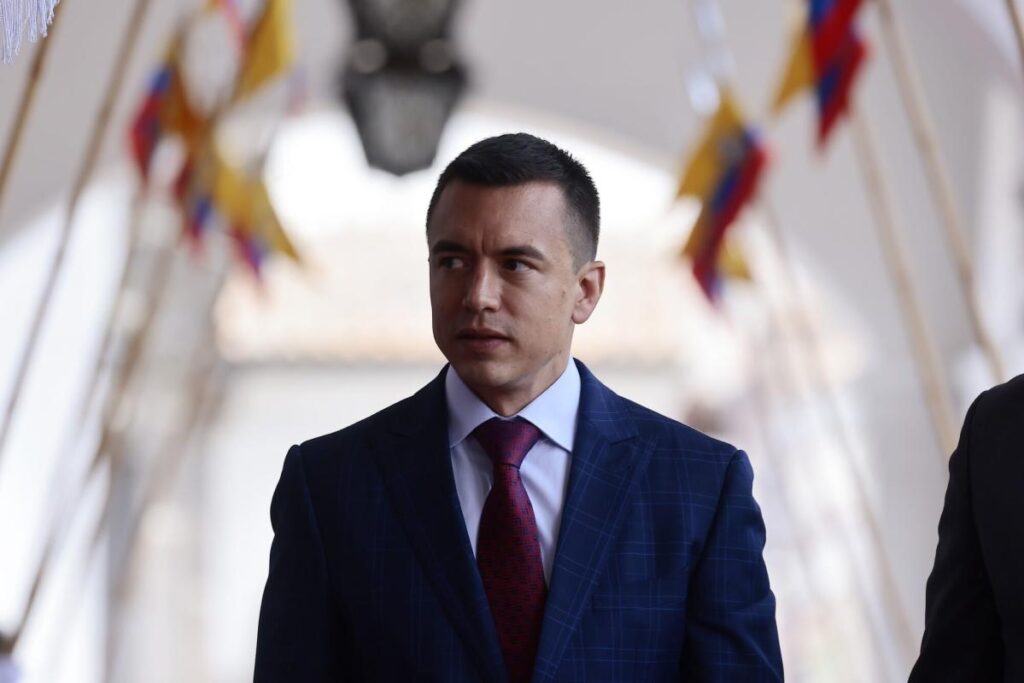Ecuadorians are grappling with severe electricity shortages that are wreaking havoc on their economy and raising significant questions about the political landscape. The country is currently facing daily blackouts of up to ten hours, exacerbating already existing struggles in a fragile economy. These power outages disrupt fundamental services, such as traffic signals and internet connectivity, while many residents are urged to limit water usage due to the strain on backup generators. Forecasts for Ecuador’s gross domestic product growth this year have dropped to 0.9%, a target that now seems unachievable, putting mounting pressure on President Daniel Noboa, who is already navigating a precarious political situation leading up to elections in February.
Ecuador’s predicament is primarily rooted in a series of misguided policies and chronic underinvestment in the energy sector. Although the country boasts abundant natural resources, including extensive hydroelectric potential, the economy has become excessively reliant on this single energy source—over 70% of its electricity is generated from hydropower—making it particularly vulnerable to dry weather. The 2008 constitutional reform that placed electricity firmly under government control stifled private investment, limiting the modernization and expansion necessary to diversify the energy portfolio. This situation has led to strained supply amidst the present drought, leaving the nation in a precarious position.
In response to the crisis, President Noboa has recently appointed his fourth energy minister since taking office last November, emphasizing the need to transition from a hydropower-centric model to a more varied mix of renewable energy sources. Noboa’s administration is seeking legislative approval for a tenfold increase in the cap on private investment in the electricity sector and has initiated the elimination of duties on generator imports. Currently, only about 30% of households possess generators to cope with the ongoing blackouts, which shortfalls in energy accessibility only exacerbate.
The adverse effects of the power outages are being felt broadly across the economy. Key industries, particularly agriculture and manufacturing, are experiencing operational difficulties and significant declines in output. Dairy production is reportedly down by 20% to 40%, driven by challenges in feeding livestock due to both blackouts and the seasonal drought. Consumers are likewise deferring spending on essential appliances, with sales plummeting by 50% for major domestic appliance manufacturers. As the electricity crisis escalates, earlier estimates indicating that the outages would cost Ecuadorians $175 per capita may require upward adjustments based on the burgeoning situation’s true economic toll.
Given the condition of thermoelectric plants and the lack of infrastructure for liquefied natural gas imports, as well as barriers to power imports from Colombia, Ecuador has resorted to short-term measures, such as hiring a Turkish barge for limited emergency power generation. Nevertheless, this stopgap solution is insufficient to meet current demand under the circumstances. Investment needs for the electricity sector total around $3 billion through 2026, a daunting figure for a nation that recently secured a $4 billion loan from the International Monetary Fund to stabilize its finances.
As the government navigates this energy crisis, the implications for President Noboa’s political future loom large. Public perception may shift as the fallout from the blackouts continues, but there remains a possibility for the president to turn the tide in his favor, particularly if the situation can be ameliorated before elections. Despite the challenges, Noboa’s previous popularity due to his crackdown on organized crime suggests that voters may be willing to overlook recent struggles if he can convincingly address and rectify the electricity crisis. The immediate focus lies on fostering an environment for both technical solutions and financial investments, crucial for Ecuador’s long-term energy stability and economic viability.

